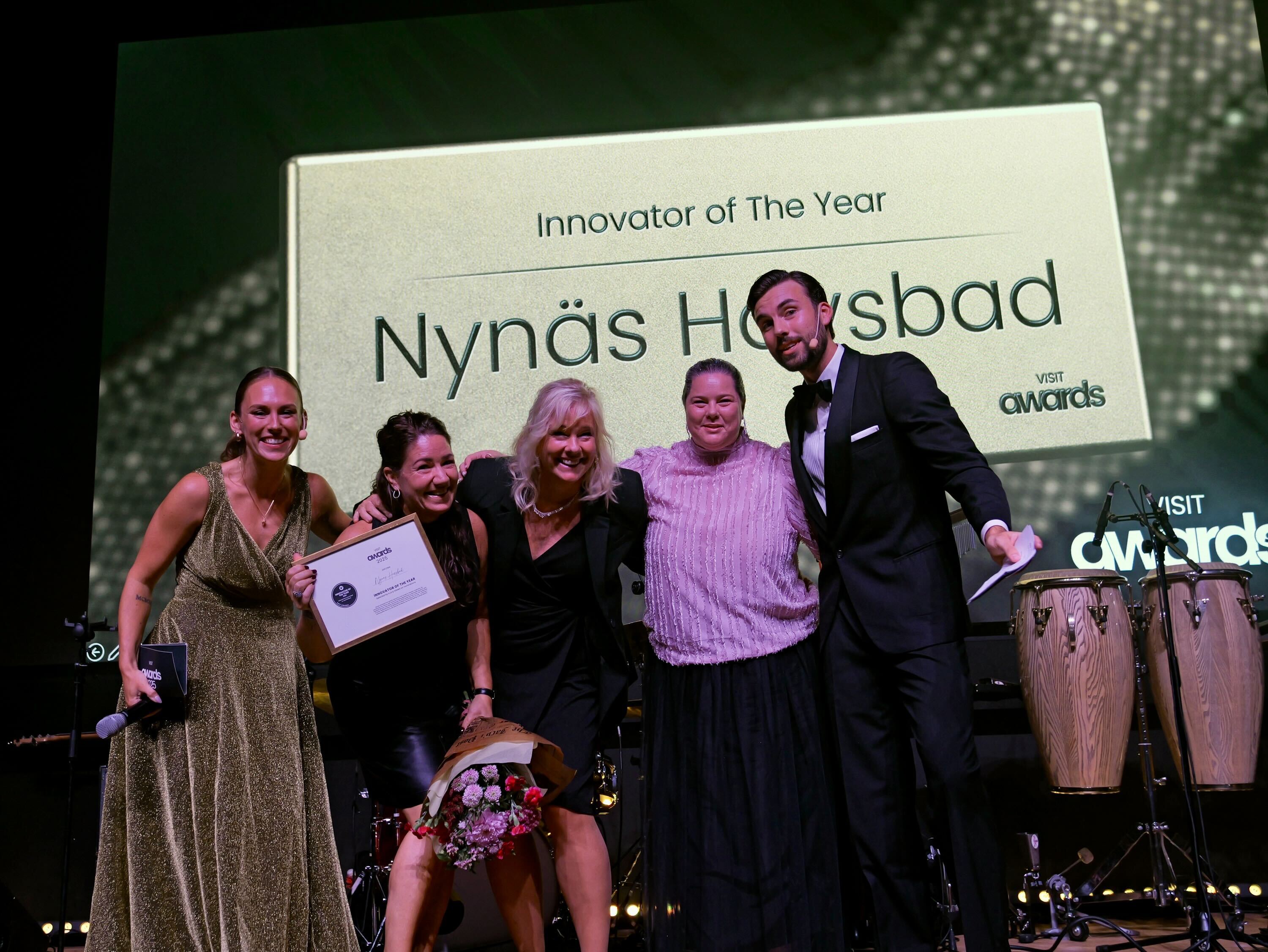Reflections on Agentic AI, customer trust, and the future of travel after Visit Summit 2025
Gam Dias is the author of Agents Unleashed – Vol 1, a guide to harnessing AI agents for Salesforce automation. With 20+ years’ experience in AI, digital transformation, and strategy, he helps organizations bridge technology and business impact.
Listening to Travel Operators in the Nordics
Starting with Gratitude
My work with Agentic AI usually takes me across industries the way planes cut across time zones. Finance one week, retail the next. But last week, at Visit Summit 2025, I had the rare privilege of standing still for a while, on solid ground, surrounded by people whose work is travel itself. It was a pleasure to meet the team at The Visit Group and so many of their partners — the hoteliers, ferry operators, and theme park leaders who make up the fabric of Scandinavian tourism.
The setting felt fitting. Travel is a deeply human experience. Anticipation, excitement, joy, even the inevitable frustration of delays or the sadness of leaving — these are not things AI can truly feel. An AI model may be able to mimic the words, but it cannot know what it is to watch a child see the ocean for the first time, or to breathe in the scent of pine on a mountain trail. Which is why, when we talk about Agentic AI, we need to remember that its role is not to take over travel but to support the people who bring travel to life.
That is why I was honoured to share my keynote on how Agentic AI is reshaping customer behaviour and what that means for the industry. And yet the most valuable part of my time at the summit wasn’t the talk itself. It was listening, hearing directly from operators about the challenges they face, and seeing how those concerns intersect with the themes I presented.
This post is my attempt to bring those threads together. What I said on stage, what I heard in conversation, and where I believe the opportunities lie for travel operators in the years ahead.
What I Heard in Gothenburg
The beauty of a conference like Visit Summit is not just the chance to present, but the chance to listen. In Gothenburg I heard directly from the people who keep the industry running every day, the operators balancing bookings and systems, the staff working the front desk, the teams making sure ferries leave on time and theme parks welcome families with a smile.
A few themes came up again and again. First, the challenge of friction: the small frustrations customers encounter at every step of the journey, from clunky check-ins to slow service when demand spikes. Second, the question of experience: not just delivering a room or a ticket, but creating a memory worth returning to. And finally, loyalty: the hard work of building repeat visits and long-term relationships in a market where choices are everywhere and switching is easy.
These are not abstract business issues. They are lived realities. I heard them from hotel managers thinking about online check-in systems, from booking agents who know consumer AI tools will soon land on their sites, and from creative directors like Fredrik Toreskog at ESS Group who spoke about crafting theatre and personality into every stay.
What struck me is how closely these themes connect with the pillars of empowerment technology we discussed in the keynote: agents; context; and identity. Not in a neat one-to-one way, but as overlapping lenses that help us see how Agentic AI can address the issues that matter most to travel operators: friction, experience, and loyalty.

When Friction Gets in the Way
When I spoke with operators in Gothenburg, many described the invisible weight of friction, the small barriers that pile up and make a customer’s journey harder than it needs to be. A website that feels clunky. A line at reception that moves too slowly. A ferry check-in that takes longer than expected. Each moment may be minor, but together they chip away at the experience.
Some of the most practical solutions are already in play. I spoke with hoteliers using online check-in and digital keys so staff spend less time on administration and more time welcoming guests. Others pointed out that consumer AI agents will soon be landing on booking sites, not browsing like humans but arriving with a clear request and expecting an immediate response. These shifts are early signals of how the industry is already starting to change.
This is where Agentic AI can help, but only if we think carefully about how it’s used. There is what we might call negative friction, the frustration that slows customers down and makes them question whether they made the right choice. Removing that should be our first priority. But there is also positive friction, the moments where a human interaction adds something an agent never could. The extra minute a front-desk team member spends giving local restaurant tips. The ferry attendant who remembers a regular customer’s name.
Agentic AI is not about replacing those moments. It is about making sure staff have the time and headspace to create them. As we automate routine workflows, we need to design systems that hand the heavy lifting to AI agents while freeing people to focus on what truly matters: human connection.
Designing Moments That Last
If friction is about removing the small irritations, experience is about adding the moments people remember. At the summit, Fredrik Toreskog, Creative Director at ESS Group, reminded us that experience is not a slogan but a craft. ESS hotels are designed with theatre in mind. Each property has its own personality, and staff are trained and resourced to bring that personality to life. When I visited Jacyz in Gothenburg, it was obvious in every interaction. The atmosphere didn’t come from décor alone, but from the way the team carried themselves, attentive and genuinely warm.
This is where Agentic AI can play a supporting role, though not in the way some might expect. Experience depends on context: knowing who the customer is; what they value; and what they are looking for in the moment. Until now, gathering that context has meant cookies, third-party data, and endless logins. The next generation of technology changes that.
Mobile devices are already capable of running personal AI that can securely access a customer’s own data from loyalty memberships to travel history, even down to the kinds of restaurants or destinations they’ve been researching. With the customer’s permission, these signals can be shared to tailor an experience that feels personal rather than generic.
For operators, the opportunity is to design in a way that respects privacy while using the signals customers choose to share. If a family has been looking at beach videos, why not make sure their welcome message highlights the best local spots? If a guest has a loyalty history with your brand, why not offer a personalised upgrade? Done well with permission this isn’t creepy, it's a service.
Agentic AI won’t create the magic of a night at Jacyz or a theme park ride that leaves children speechless. But it can give staff the context to anticipate needs and deliver the touches that make a trip unforgettable.

Loyalty in a World of Uncertainty
The third theme that came through in conversations at Visit Summit was loyalty. Every operator I spoke with, from hotels to online booking agents, circled back to the same goal: how do we get customers to return, to trust us, and to stay with us over time? Upsell tactics and repeat offers matter, but at its core loyalty is about something deeper. It is a relationship built on trust.
In today’s market, that trust is under pressure. AI-generated videos sell tickets to attractions that don’t exist. Fake reviews are written by generative models. Malicious agents pose as humans, using stolen identities. Customers increasingly wonder whether the voice on the other end of a chat window is a person or a machine. In that environment, loyalty begins with a simple question: do I know who I’m really dealing with?
This is where identity becomes essential. The coming wave of digital wallets will allow customers to prove who they are, pay securely, and even verify that a review is written by a real human. For operators, it means knowing that the person making a booking is genuine, and for customers it means confidence that their transaction is safe. Agentic AI agents can act on behalf of a customer, but only if that customer’s identity is both secure and verifiable.
Think of it as a new baseline. Loyalty programs will still matter, but they will rest on a foundation of digital trust. When that trust is established, the real work of loyalty can begin, creating personalised offers, recognising returning guests without asking them to repeat the same details, and rewarding them in ways that feel meaningful rather than transactional.
Agentic AI is not the answer to loyalty on its own. But combined with verifiable identity and customer trust, it can become the mechanism through which loyalty is strengthened rather than eroded.
Six Questions Every Operator Should Ask Now
The workshop on Agentic AI that Chris Micklethwaite and I ran at Visit Summit was oversubscribed, and the energy in the room said it all. Operators are not just curious. They are planning. Many already have agentic AI on their business roadmaps. The question is not whether this will arrive, but how to prepare for it.
The temptation is to wait until the technology is fully mature — until large language models are more reliable, until standards are finalized, until governance is in place. But by the time all of that happens, customer expectations will already have shifted. The work of preparation needs to begin now.
From what I’ve seen across industries, there are six areas every travel operator should be thinking about today:
- Data: Is your booking data complete and accurate, and is your customer data legally usable? Do you have mechanisms to keep it up to date? Agentic AI will only be as good as the data you feed it.
- Process: Are your workflows streamlined, or are staff still covering for gaps in poorly defined steps? Agents thrive in clarity but stumble where ambiguity reigns.
- Infrastructure: Are your systems ready for a tenfold increase in “look-to-book” ratios as agents search and re-search on behalf of customers? Scalability will become a competitive edge.
- Security: Can you authenticate an AI agent acting on behalf of a human? Do you have the right permissions models in place to protect data and transactions?
- Customer Experience: Are you ready for segments of your customers who may resist agent-driven interactions, or who will need extra support to adapt? Transition will not be uniform.
- Employee Education: Are your teams prepared to see agents as enablers rather than threats? What new roles could emerge when a staff member has an AI partner at their side?
These are not abstract checkboxes. They are practical readiness questions. Every operator who begins addressing them now will find the transition to agentic commerce far smoother than those who wait.
Looking Ahead Together
Agentic AI is not a distant prospect. It is already arriving in the systems customers use, and it will soon become part of the daily operations of hotels, ferries, and attractions across Scandinavia. But no matter how advanced the technology becomes, travel will remain a human experience. AI can remove friction and provide context, but it cannot replace the smile at check-in, the personal reassurance during a delay, or the small acts of kindness that turn a transaction into a memory.
That is why now is the time to prepare. Start small, test what works, and make sure your business is ready to welcome not just today’s travelers but their personal AI agents as well. The operators who take these steps early will not only reduce friction and improve experience, they will build the loyalty that defines long-term success.
Before closing, I want to thank the people who made Visit Summit such a rich experience. At Visit Group: Carl-Johan Holmén, Erica Broomelius, Chris Micklethwaite, Renée Anderson, Philip Andersson, and Nikita Dolinarosa. And at ESS Group: Annie Dorthé and Anna-Carin Rasmussen — with special thanks to Anna-Carin, who went out of her way to personally help me in a moment when I needed it most. It was a powerful reminder that everything I spoke about ultimately comes down to humans helping humans. That is, and always will be, the heart of travel.
If you would like to explore how your business can prepare for agentic commerce, I’d be delighted to continue the conversation. You can reach me at [email protected] or follow my ongoing work at Agents Unleashed.
Gam Dias

